Earth's Place in the Universe

Educators and Parents, Sign Up for The Cheat Sheet
Weekly updates to help you use Science News Explores in the learning environment
Thank you for signing up!
There was a problem signing you up.
-
 Fossils
FossilsDino double whammy
Most scientists think an asteroid helped kill off the dinosaurs. But new calculations suggest that asteroid might have gotten some help from a long series of volcanic eruptions in what is now India.
-
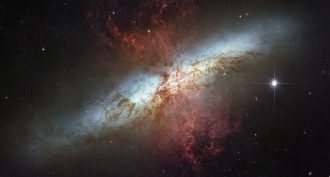 Physics
PhysicsLight robs galaxy of star-making gas
Stars form from clouds of hydrogen and other gases. Astronomers have found the light from newborn stars can drive off that gas. That action can starve a galaxy of the ingredients needed to make more stars.
-
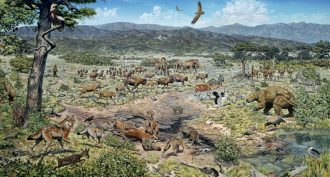 Fossils
FossilsTar pit clues provide ice age news
New analyses of insects and mammals trapped in the La Brea Tar Pits point to climate surprises during the last ice age.
By Sid Perkins -
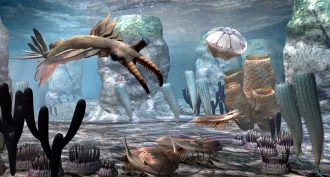 Earth
EarthWhen life exploded
Life exploded in diversity during the Cambrian Period. Experts are exploring what could account for this sudden change 540 million years ago.
By Beth Geiger -
 Planets
PlanetsPicture This: Falling to a comet
After a more than decade-long ride, a robotic lander has left its spacecraft and floated down onto the surface of a comet. From there it should begin scouting for hints at how our solar system formed.
-
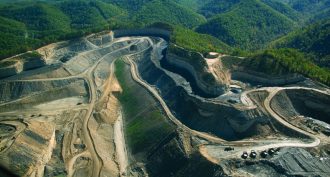 Earth
EarthHow people have been shaping the Earth
We are the dominant force of change on Earth. Some experts propose naming our current time period the ‘Anthropocene’ to reflect our impact.
-
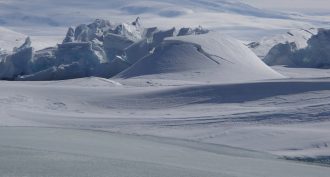 Earth
EarthExplainer: Understanding ice ages
Earth slowly wobbles, tilts and stretches (or contracts) as it orbits the sun. These changes may be fairly small and subtle. Still, their cumulative impacts can be huge — sometimes triggering the slow onset of an ice age or an abrupt thaw.
By Sid Perkins -
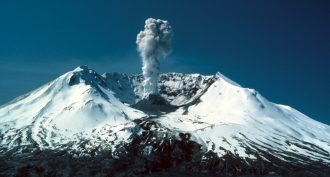 Earth
EarthExplainer: The volcano basics
Here’s an overview of what they are, where they form and the many ways they pose dangers.
By Sid Perkins -
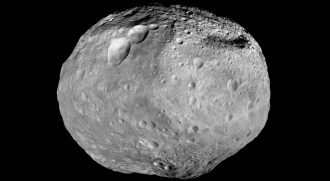 Planets
PlanetsExplainer: What are asteroids?
Leftovers from the creation of the solar system, asteroids are space rocks that orbit the sun. Let’s hope the big ones never become meteorites.
-
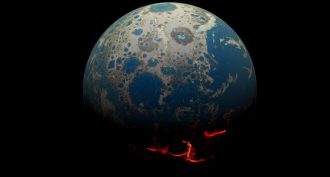 Earth
EarthMeteorites likely wiped out Earth’s earliest life
Enormous meteorites appear to have slammed into Earth several times early in its history. Each mega-smashup would have boiled off oceans and obliterated any bit of life.
-
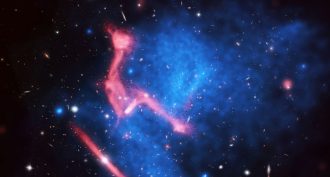 Space
SpaceMonster collision in space
The smashup of four clusters of galaxies has sent a super-hot jet of charged particles spewing 2.5 million light-years into space!
-
 Planets
PlanetsFirst mega-Earth found
Astronomers are puzzled by Kepler-10c. This exoplanet is rocky like Earth — but as massive as Neptune. And that challenges their accepted ideas about how planets form.